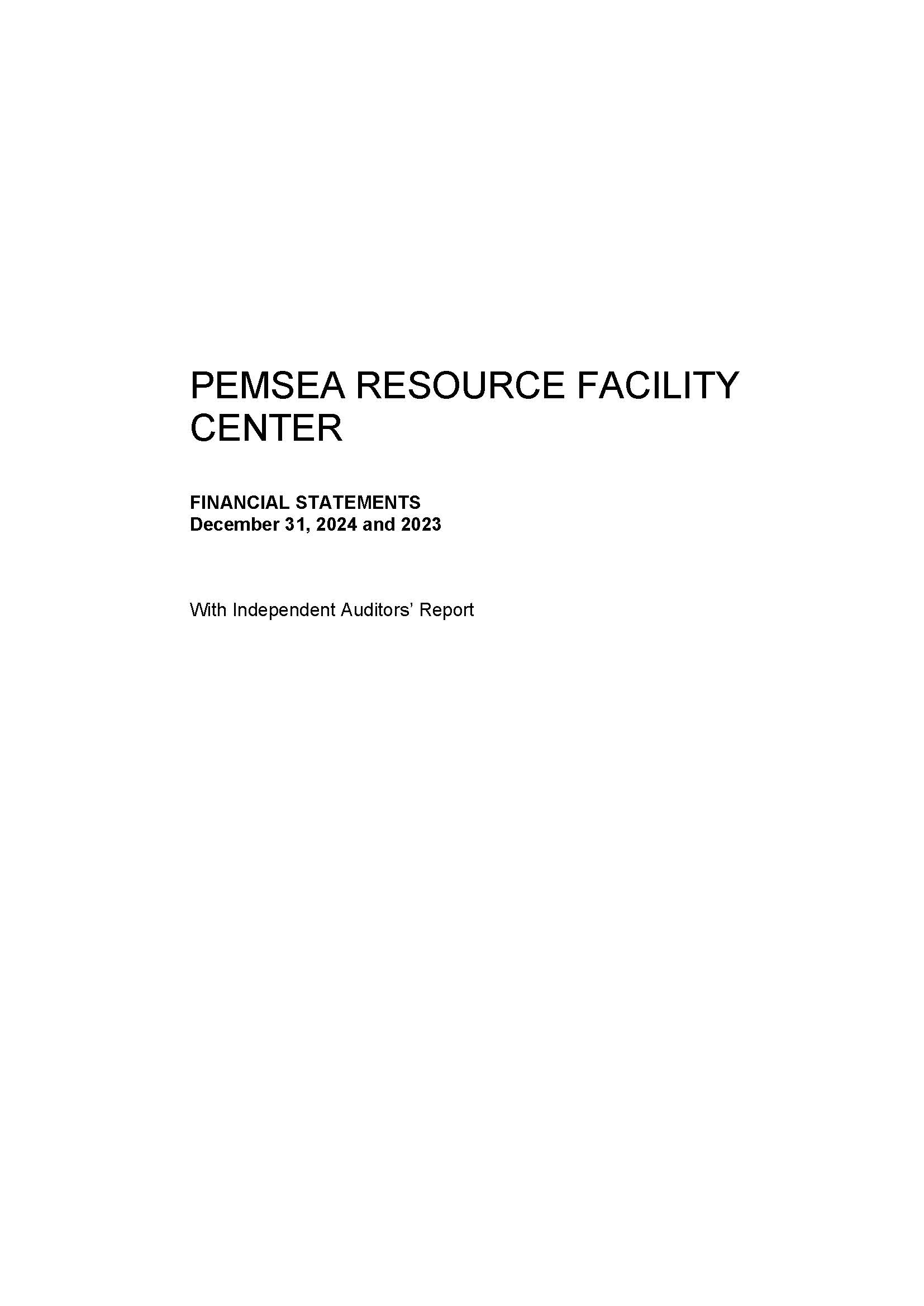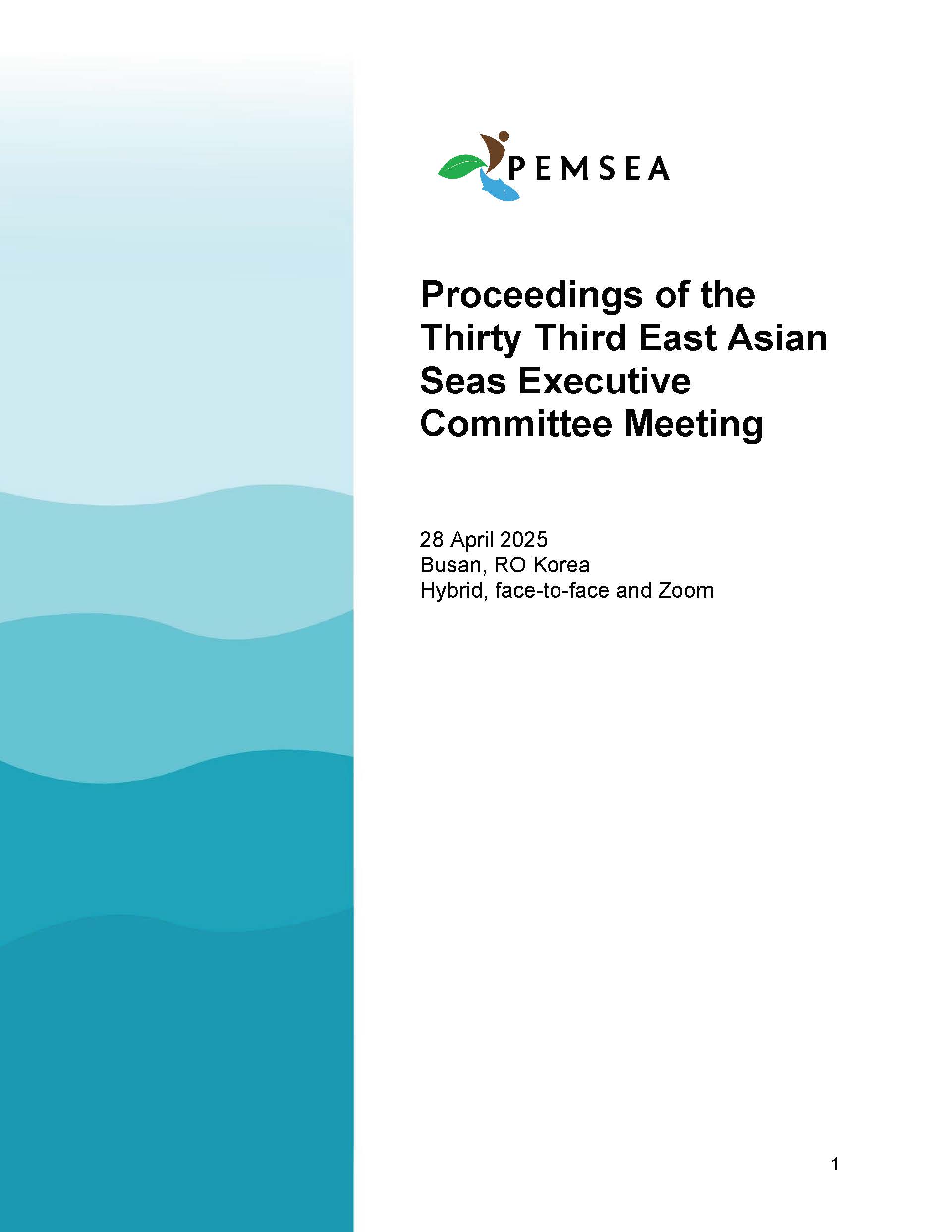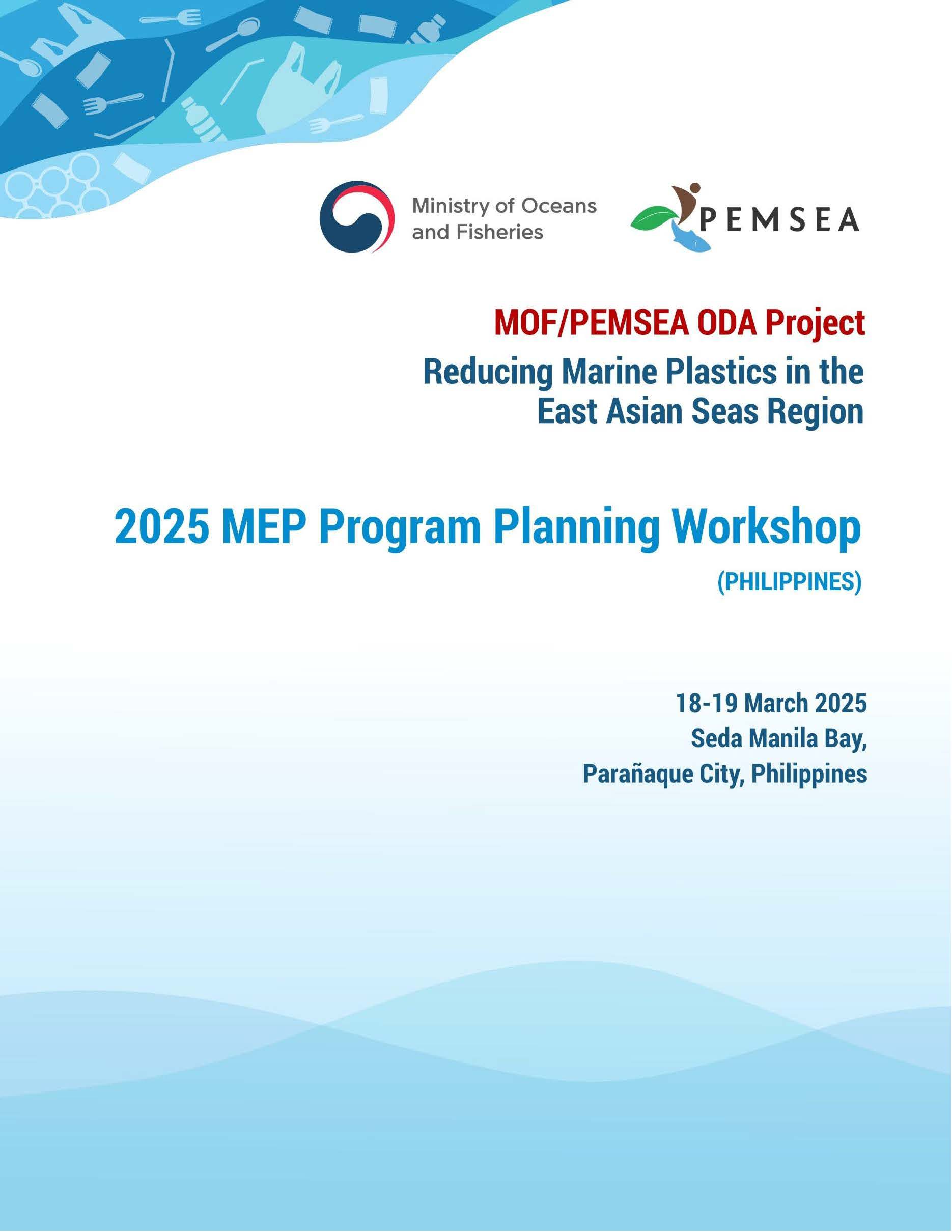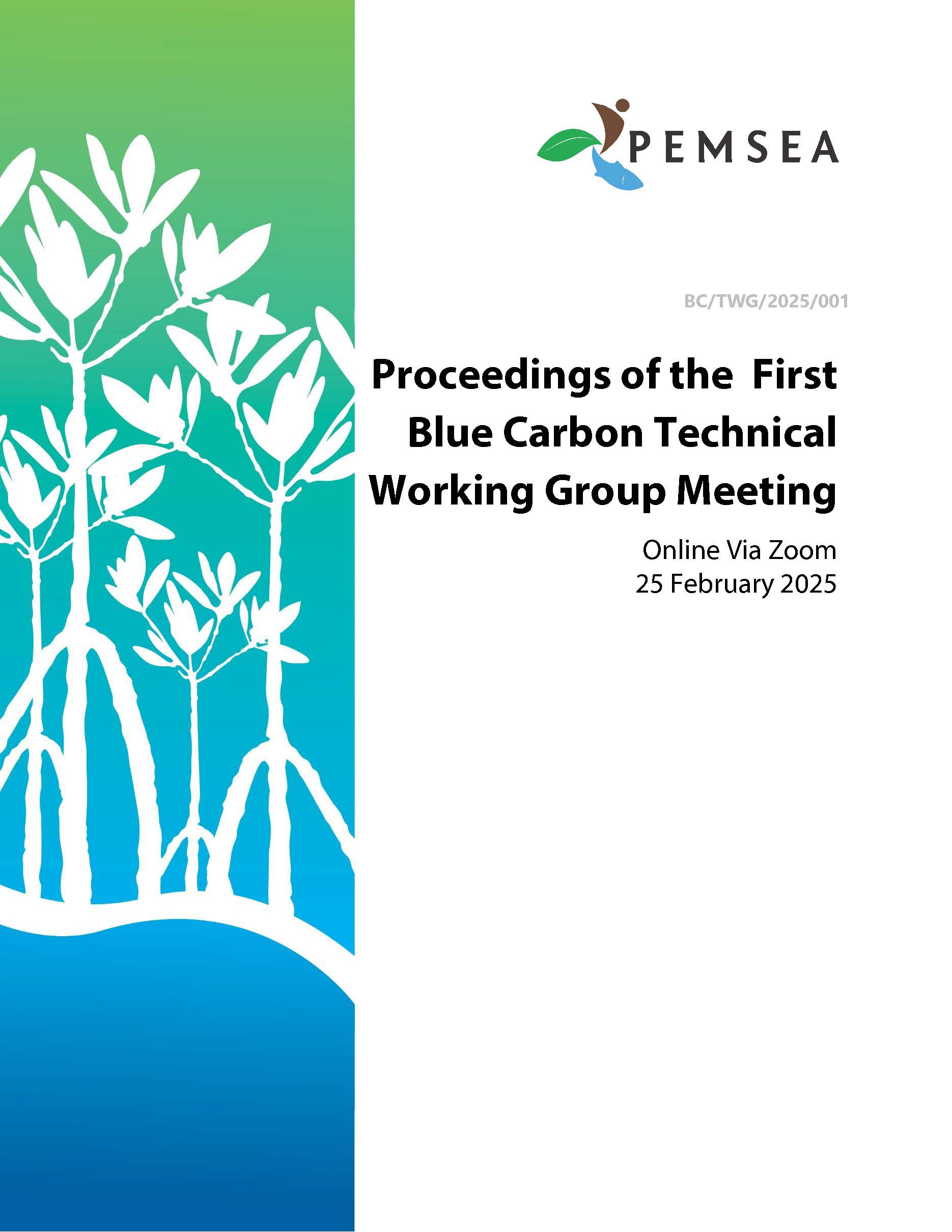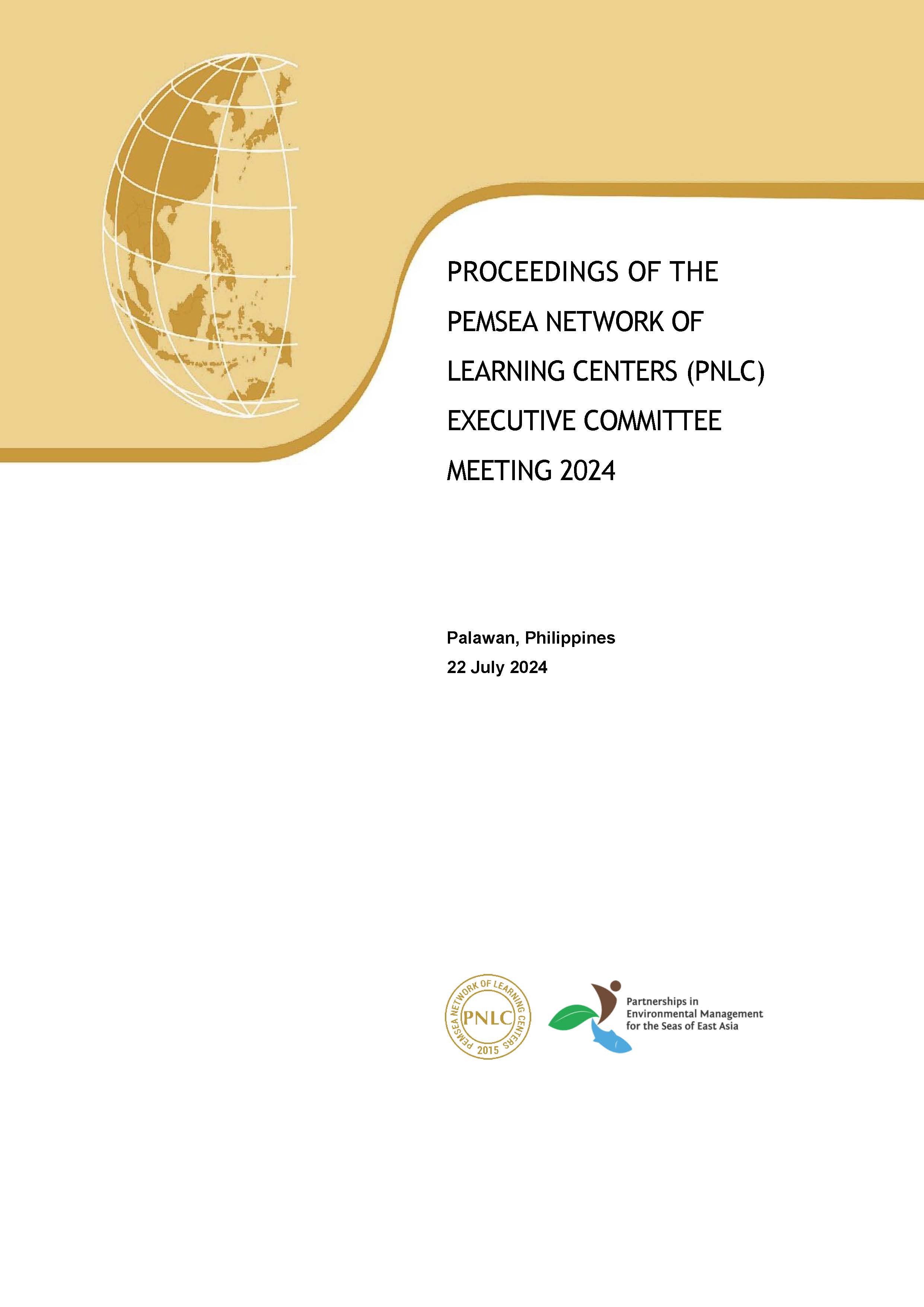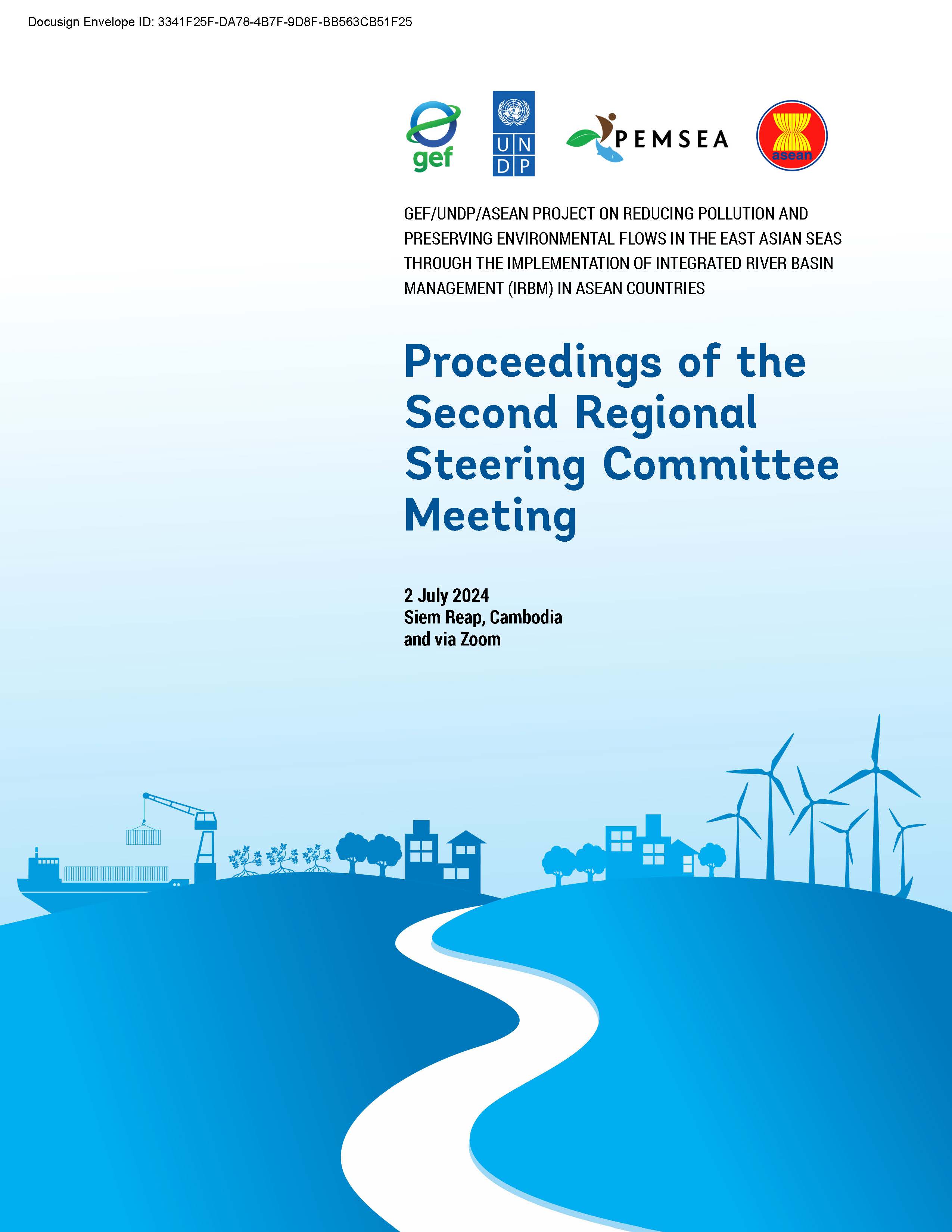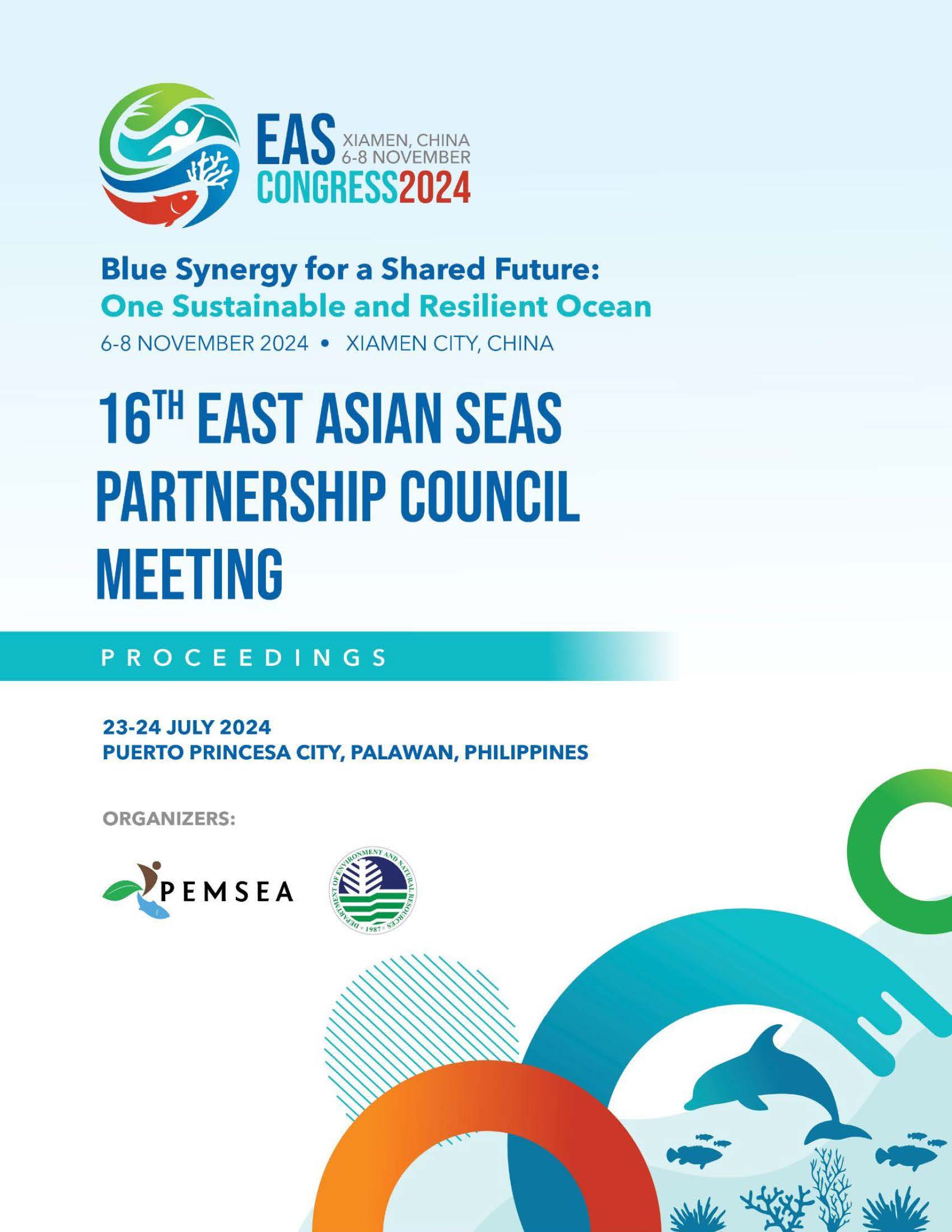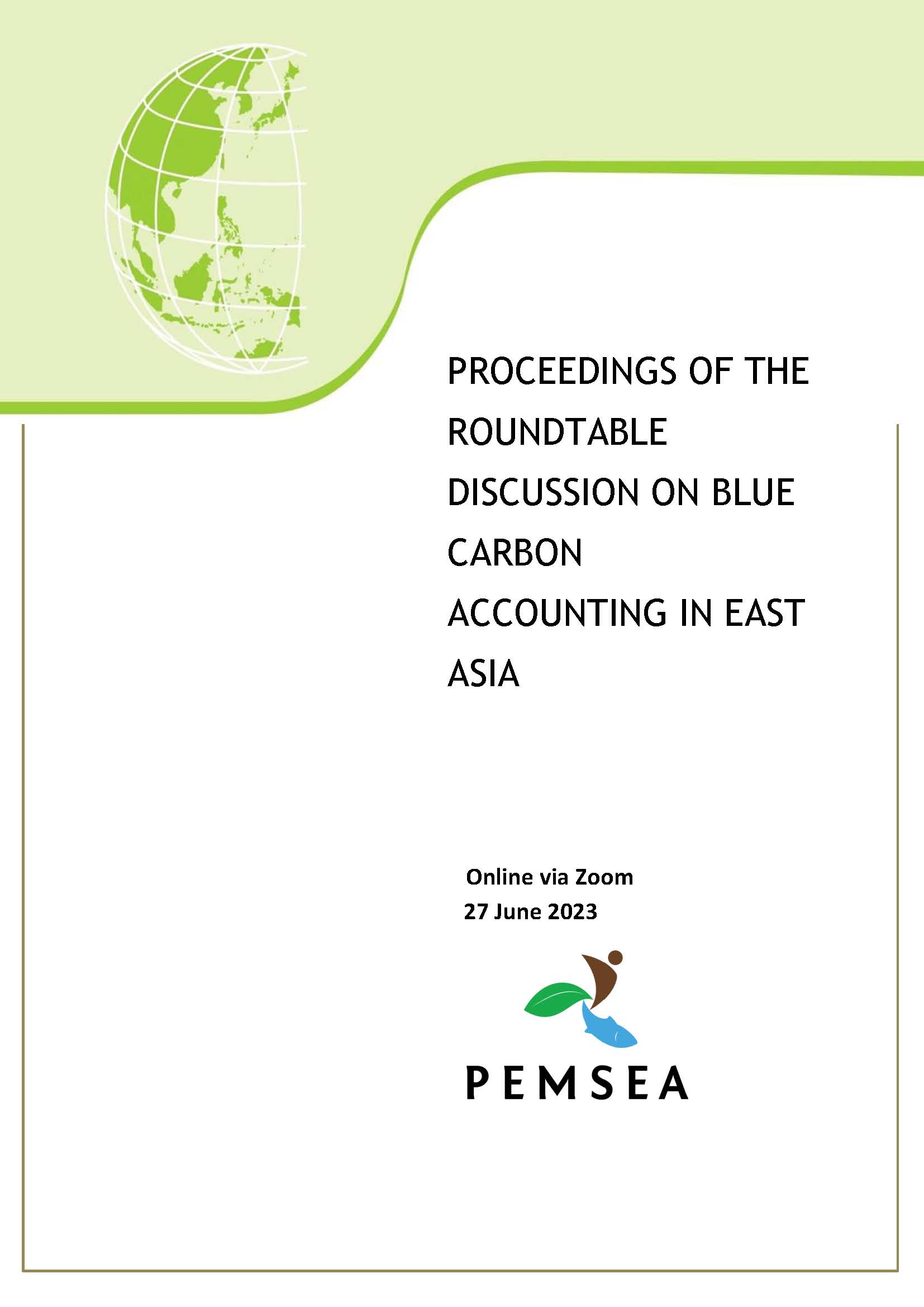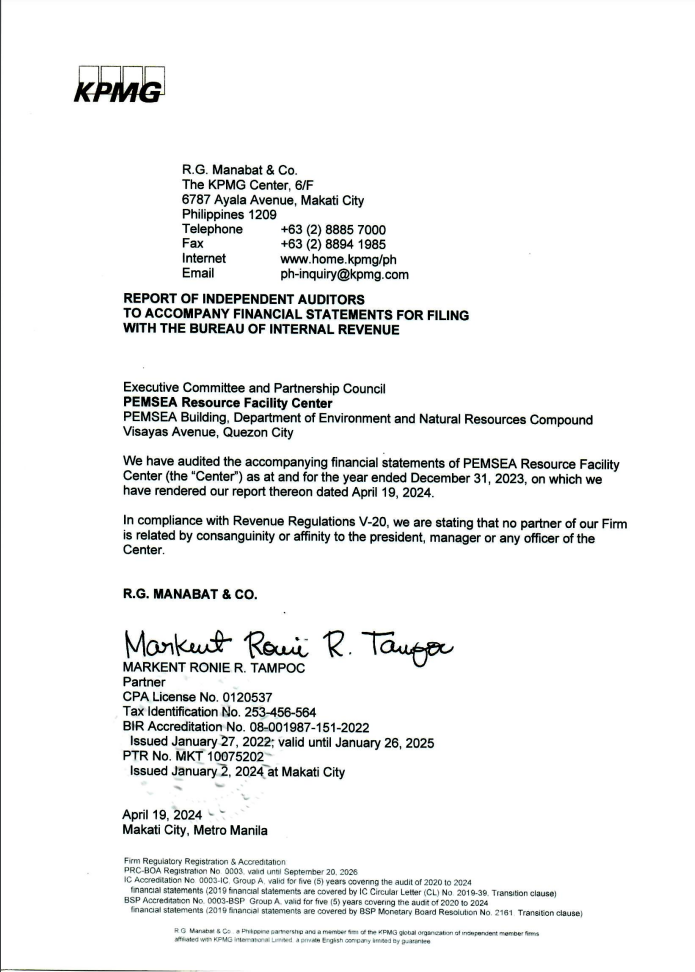
Breadcrumb
Proceedings of the Thirty Third East Asian Seas Executive Committee Meeting
The East Asian Seas (EAS) Executive Committee convened its 33rd Meeting on 28 April 2025 in Busan, Republic of Korea. The meeting gathered key leaders of the EAS Partnership Council, including Chair Dr. Vann Monyneath, Co-Chair Atty. Jonas Leones, Intergovernmental Session Co-Chair Mr. Le Dai Thang, Technical Session Chair Dr. Keita Furukawa, and Technical Session Co-Chair Dr. Suk-Jae Kwon. The PEMSEA Resource Facility (PRF) Secretariat, led by Executive Director Ms. Aimee T. Gonzales, provided secretariat support, alongside other PRF staff. Observers included representatives from the Arafura Timor Seas program, Korea Maritime Institute, China’s Ministry of Natural Resources, and the China PEMSEA Center, with additional PRF personnel joining online.
The meeting agenda featured key updates and strategic discussions on the outcomes and next steps following the East Asian Seas Congress 2024, the alignment of the Sustainable Development Strategy for the Seas of East Asia (SDS-SEA) with 2030 targets, and PRF’s accomplishments in 2024 and work plan for 2025. Other agenda items included preparations for the 17th EAS Partnership Council Meeting, the engagement of Non-Country Partners, progress on the Blue Carbon Program, presentation of the 2024 audited financial report, and governance matters such as the election of new officers and the selection process for the next PRF Executive Director.
Proceedings of the 2025 MEP Program Planning Workshop
The planning workshop for the 2025 Marine Environment Protector (MEP) Program was conducted on 18-19 March 2025 at Parañaque, Philippines and brought together representatives from MEP partner organizations across six Philippine sites.
Representatives from the four existing MEP program sites presented their 2024 accomplishments and shared lessons learned from implementation. The workshop also served as an introduction for new MEP partners from Bulan and Calbayog who will begin implementation in 2025.
The participants discussed various campaigns and identified effective practices that could be applied across different sites. Together, they drafted comprehensive work plans and timelines aligned with the 2025 implementation guidelines established by the Regional Project Management Unit (RPMU).
The two-day workshop successfully established target outputs for 2025 implementation and developed strategies to effectively impact local communities in their respective sites. Participants focused on ensuring engagement and full support of their respective local government units for proposed marine plastic waste management initiatives.
Proceedings of the 1st Blue Carbon Technical Working Group Meeting
The First Blue Carbon Technical Working Group meeting was held on February 25, 2025, online via video conference (Zoom). The meeting was chaired by the Technical Session Chair and Co-Chair of the East Asian Seas (EAS) Partnership Council (PC) and participated by PEMSEA country partner designated representatives and non-country partner representatives from the National Marine Hazard Mitigation Service (NMHMS), Ocean Policy Research Institute of the Sasakawa Peace Foundation (OPRI-SPF), Conservation International (CI), Korean Maritime Institute (KMI); PNLC members, Xiamen University, University of the Philippines Marine Science Institute (UP-MSI); and other collaborators, such as the China Green Carbon Foundation and OceanPixel. The PEMSEA Resource Facility (PRF) served as the Secretariat.
PEMSEA NETWORK OF LEARNING CENTERS (PNLC) 2024 Executive Committee Meeting Proceedings
The document contains the proceedings from the PNLC Executive Committee (EC) held 22 July 2024 in Puerto Princesa, Palawan, Philippines.
The meeting was participated in by the President and Vice-President of the PNLC, the PEMSEA Executive Director the PNLC Secretariat from IPB and the PEMSEA Resource Facility. The agenda included:
· Review of the PNLC Workplan
· PNLC Secretariat Turnover MOA to CCMRS-IPB
· Updates and plans on PNLC Financial Sustainability Efforts
· New PNLC Membership Applications
· PNLG-PNLC Joint Session at the EAS Congress 2024
· 4th PNLC General Assembly AgendaThe meeting was organized jointly by the PEMSEA Resource Facility (PRF) and the Center for Coastal and Marine Resources Studies (CCMRS) of the IPB University, Indonesia with support from the Department of Environment and Natural Resources (DENR) of the Philippines.
IRBM: Proceedings of the Second Regional Steering Committee Meeting
The Second Regional Steering Committee (RSC) meeting of the GEF/UNDP/ASEAN Project
on Reducing Pollution and Preserving Environmental Flows in the East Asian Seas through
the Implementation of Integrated River Basin Management (IRBM) in ASEAN Countries was
organized back-to-back with the 24th Meeting of the ASEAN Working Group on Water Resources
Management (AWGWRM) on 2 July 2024 through a hybrid format, i.e., in-person at Bayon Era
Hotel in Siem Reap, Cambodia and online via Zoom.
Hosted by the Royal Government of Cambodia through the Ministry of Environment (MOE),
the meeting was co-chaired by Mr. Oudomsack Philavong, Chair of the ASEAN Working Group
on Water Resources Management (AWGWRM) and Mr. Gerd Trogemann, Manager of United
Nations Development Programme-Bangkok Regional Hub of Asia and the Pacific (UNDP-BRH).
The meeting was attended by the National Focal Points (NFPs) of the AWGWRM from the
ten (10) ASEAN Member States (AMS), i.e., Brunei Darussalam, Cambodia, Indonesia, Lao
PDR, Malaysia, Philippines, Singapore, Thailand and Viet Nam, the ASEAN Secretariat (ASEC),
the East Asian Seas Executive Committee (EAS EC) and UNDP-BRH. The Regional Project
Management Unit (RPMU), hosted by PEMSEA Resource Facility (PRF) and MOE Cambodia
served as Secretariat to the RSC meeting.Proceedings of the Sixteenth East Asian Seas Partnership Council Meeting
The 16th EAS Partnership Council Meeting was held on July 23-24, 2024, at Costa Palawan Resort, Puerto Princesa, Philippines, and via Zoom. Onsite participants included the EAS PC Chair; the Intergovernmental Session Chair and Co-Chair; the Technical Session Co-Chair ; the Executive Director of the PEMSEA Resource Facility (PRF); country partners from Cambodia, China, Indonesia, Japan, Lao PDR, Philippines, Timor-Leste and Vietnam; non-country partners from the ASEAN Center for Biodiversity (ACB), Oil Spill Response Ltd. (OSRL), PEMSEA Network of Local Governments (PNLG), and PEMSEA Network of Learning Centers (PNLC) as an observer.
Online participants included the EAS PC Co-chair, Technical Session Chair, country partners from RO Korea and Singapore; non-country partners from the International Environmental Management of Enclosed Coastal Seas Center (EMECS), International Union for Conservation of Nature - Asia Regional Office (IUCN-ARO), Korea Institute for Ocean Science and Technology (KIOST), Korea Marine Environment Management Corporation (KOEM), Ocean Policy Research Institute of the Sasakawa Peace Foundation (OPRI-SPF), Ipieca and the National Marine Hazard Mitigation Service (NMHMS).
The meeting covered various topics including updates on the EAS Congress 2024, progress report on SDS-SEA Implementation 2023-2027, updates on the Blue Carbon Program, and preparations for the 8th Ministerial Forum. Key outcomes included approving NMHMS as a new non-country partner, discussing the draft Ministerial Declaration, and approving the PRF Work Plan and Budget for 2024-2025. The meeting concluded with recommendations for enhancing regional cooperation and sustainable coastal management in the East Asian Seas region.
Proceedings of the Roundtable Discussion on Blue Carbon Accounting in East Asia
The Roundtable Discussion on Blue Carbon Accounting in East Asia was held online via Zoom last June 27, 2023. The small group was composed of select representatives from the PEMSEA Resource Facility (PRF) and the PEMSEA Network of Learning Centers (PNLC). The objectives of the small group discussion were to (1) present the concept on PEMSEA Blue Carbon Credit system, including the general mechanism, roles of partners, and services; (2) share existing initiatives on blue carbon by partners COMI-Xiamen University, CCMRS-IPB, MSI-University of the Philippines, Zhejiang University); and, (3) identify challenges and opportunities in blue carbon industry to determine strategic ways forward for PEMSEA in the blue carbon industry.
